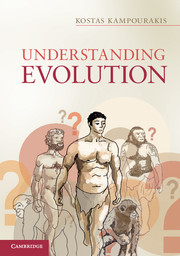Book contents
2 - Religious resistance to accepting evolution
Published online by Cambridge University Press: 05 June 2014
Summary
The idea of evolution has been widely, and sometimes fiercely, debated in the public sphere. Various polls in the United States, Europe, and other countries have shown that there is a low public acceptance of evolution (see, for example, Miller et al., 2006). This low public acceptance is usually related to Creationism (Intelligent Design or ID is often considered as its most recent version, although there are some differences between them – see Numbers, 2006, and especially Numbers, 2011). Although Creationism is prevalent in the United States, it is by no means restricted to there; it seems to be emerging in other countries too (Numbers, 2009a). In general, Creationism is the belief that God created the universe, including the Earth and humans, through a series of miracles. Young-Earth Creationists perceive the world to have been created in six days of 24 hours each, sometime within the last 10 000 years, whereas Old-Earth Creationists accept the scientific account of the age of the Earth but still believe that the creation of life and organisms took place through a series of miraculous interventions. ID proponents provide a seemingly more sophisticated criticism of evolutionary theory, claiming that it cannot explain everything about life. They consider, e.g., the vertebrate eye or the bacterial flagellum, as irreducibly complex systems – i.e., systems that become non-functional if a part is removed – , which cannot therefore have evolved simply through evolution by natural selection. In their view, such systems can only have been created for their current roles by an intelligent agent or Creator God, and so stand as evidence for ID. In addition, they claim that evolution by natural selection is explanatorily insufficient since it has a low probability to occur. However, such arguments are fallacious because many events can have a very small probability to occur and yet are possible (e.g., the outcome of repeated tosses of a coin resulting in heads five consequent times has a low probability, but it is possible). Most importantly, an event (e.g., the origin of complex biological structures) having a small probability does not imply the improbability of the theory assigning this probability (e.g., evolutionary theory) (see Brigandt, 2013 for a recent overview and critique).
- Type
- Chapter
- Information
- Understanding Evolution , pp. 31 - 61Publisher: Cambridge University PressPrint publication year: 2014



